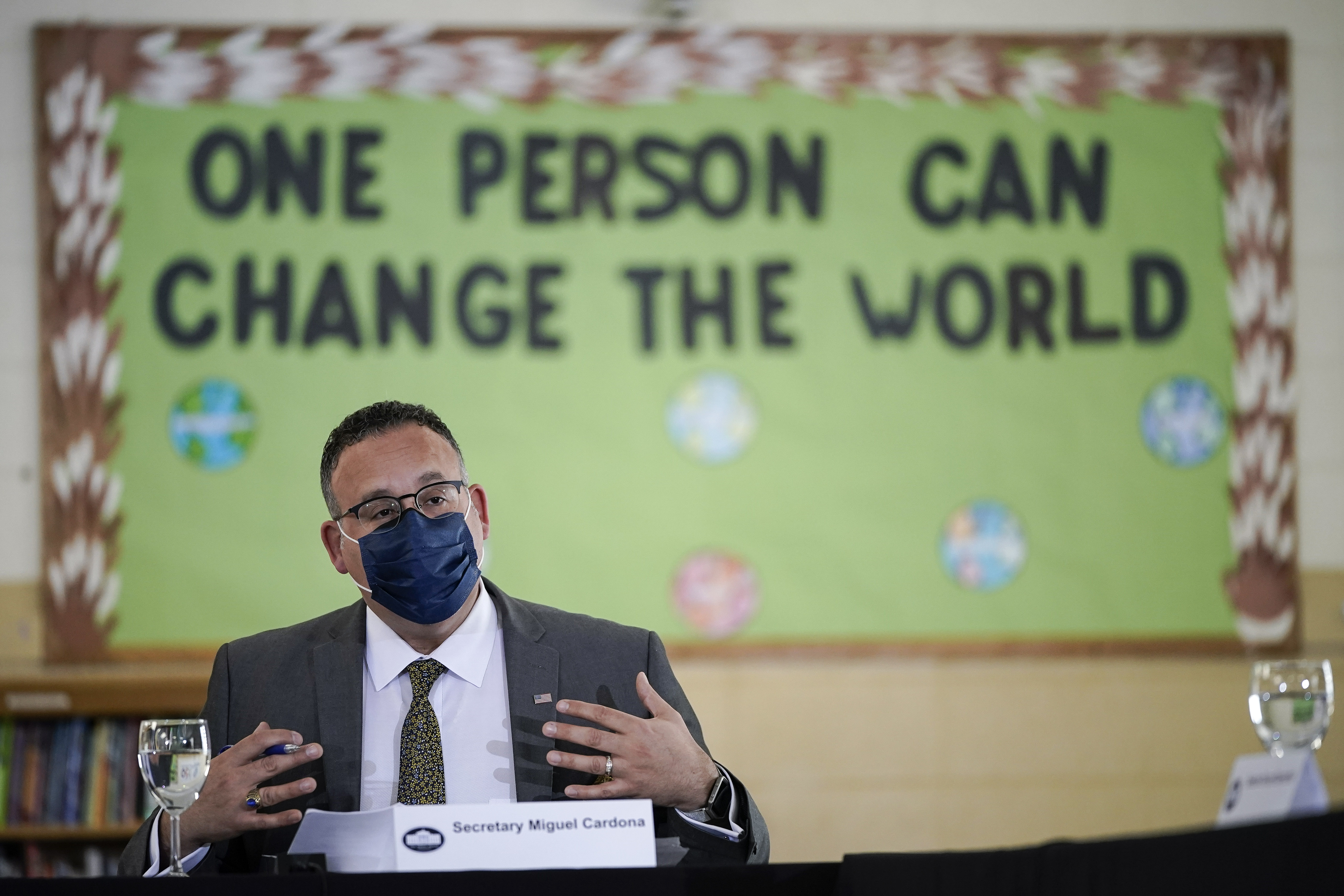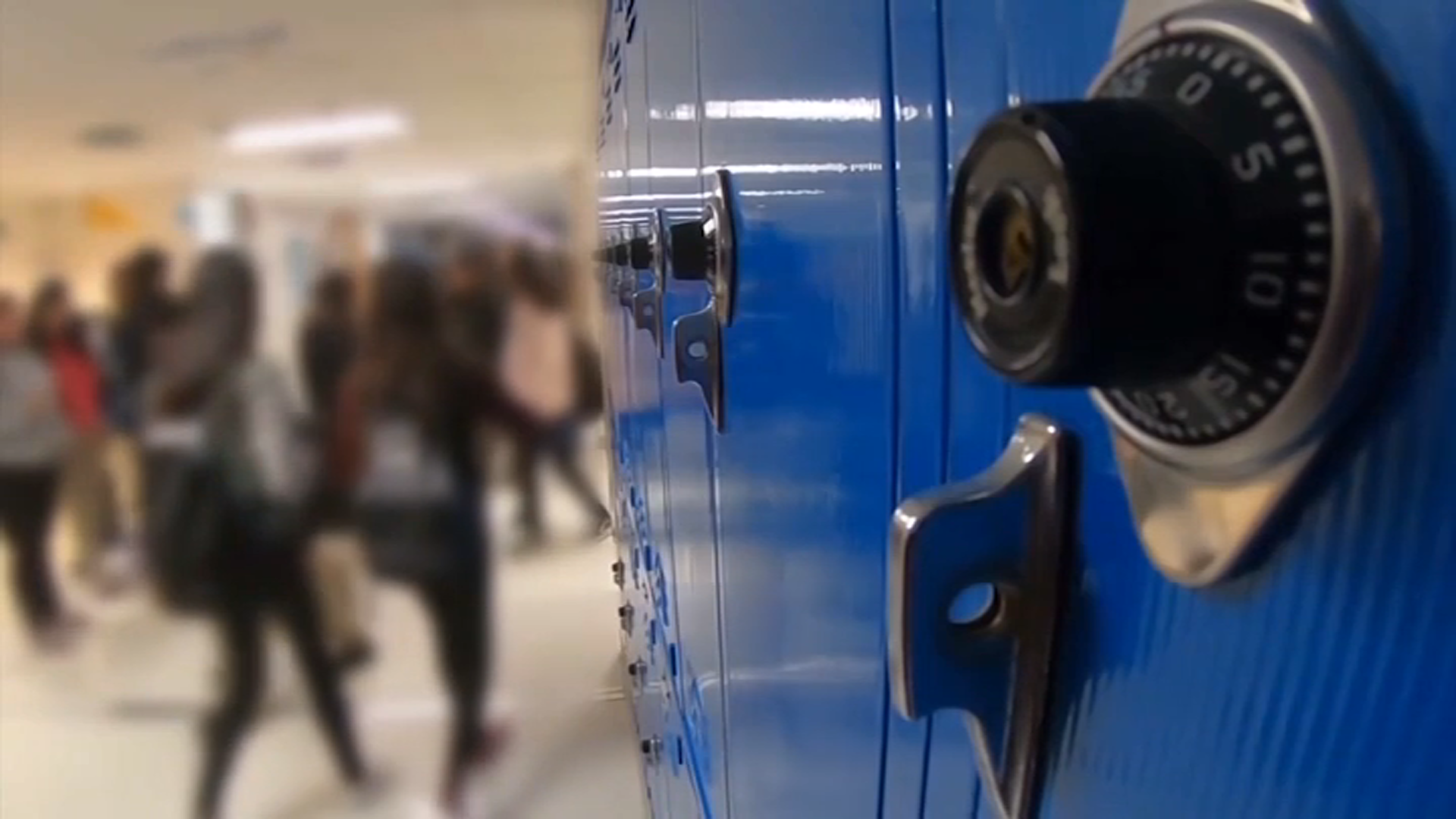In January, when the Baker administration announced a new pooled COVID-19 testing initiative for K-12 schools, Education Secretary James Peyser said technological advances had enabled the state "to take our testing program to the next level."
Three months later, with 185 of 400 school districts participating and the state now planning to pick up the tab through the end of this academic year, some of those involved are looking a level beyond, eyeing the Massachusetts program as a potential national model.
WATCH ANYTIME FOR FREE
Stream NBC10 Boston news for free, 24/7, wherever you are. |
"We've already had other states ask us if we could replicate the program," said Tim Rowe, the co-founder and CEO of CIC Health, one of the pooled testing providers. "We're expecting most states, perhaps all states, will do this."
CIC Health announced Tuesday it had partnered with the Pandemic Response Lab "to provide COVID-19 pooled testing for schools across the country," with the Brooklyn-based PRL handling the back-end labwork including both the testing itself and genome sequencing of positive pool results to track viral variants.
Get updates on what's happening in Boston to your inbox. Sign up for our News Headlines newsletter.
Pooled testing involves laboratories testing multiple swabs in a single batch. If there is a positive result, all members of that pool are individually re-tested.
More on Massachusetts' pool testing program
Through the voluntary program that Baker's office has described as a "first-in-the-nation pooled testing initiative," participating schools conduct the screenings of staff and students whose parents have given consent at least once a week.
As of March 29, the schools had tested almost 159,000 individuals in 22,679 pools, with a pool positivity rate of 0.76 percent, according to the administration. That same day, the statewide seven-day average positive test rate was 2.57 percent.
"It's a very low percentage to come back positive, because keep in mind, if you're sick or you think you might have COVID, you're not coming into school, so you're already testing people who are probably not sick," Rowe said of the school pooled testing, in a recent interview.
Last week, when state education officials published data showing 821 new student cases of COVID-19 and 157 new staff cases recorded by local school districts over the week from April 1-7, the Department of Elementary and Secondary Education said the pooled testing program "suggests that a vast majority of positive cases can be isolated to one student or staff, versus spreading through in-school transmission."
Initially, the state planned to cover costs of the pooled testing only during a start-up period. Districts that wished to continue after that point would become responsible for their own expenses, potentially using federal stimulus money, and would be able to buy the services through a statewide contact.
In late March, the Baker administration announced it would cover costs beyond the April 18 date when state funding was set to end and through the end of this school year, citing roughly $207 million in additional federal funds for COVID-19 testing that Massachusetts was now expecting to receive.
The Department of Elementary and Secondary Education on Tuesday held a webinar to advise school leaders of what it described as "the simple steps schools and districts will need to take in order to continue services beyond April 18."
The U.S. Department of Health and Human Services plans to invest a total $10 billion in American Rescue Plan money in ramped-up COVID-19 screening to help schools reopen.
"With this funding for testing, every state in America will have access to millions of dollars to set up screening testing programs to add a layer of protection for schools, teachers, and students," Carole Johnson, the White House COVID-19 Response Team's testing coordinator, said at a March 17 briefing. "This funding can be used to test teachers and staff, students and others with symptoms of COVID, those who may have been exposed, and to establish sustained regular screening testing programs across the school system."
Last week, Congressman Jake Auchincloss visited Medfield High School, where the pool testing is conducted through Boston-based Ginkgo Bioworks.
"The American Rescue Plan funds are going to allow the Medfield model to scale up so that we can get kids back to full time in-person learning, which we know is critically important not just for their academic development, but also just as important for their mental health," the Newton Democrat said after his tour.
According to Auchincloss' office, Concentric by Ginkgo, the company's public health and biosecurity effort, aims to "provide easy, affordable pooled testing to every school in America."
"The Massachusetts plan is a model for testing programs across America and shows all the good public-private partnership can bring to communities as we rebuild from this biological crisis," Ginkgo Bioworks chief commercial officer Matt McKnight said in a statement.
CIC Health, which also operates the mass vaccination sites at Gillette Stadium, the Hynes Convention Center and the Reggie Lewis Center, had been working with schools on more of a one-on-one basis before the state program launched, said Bill Jacobson, the company's head of pooled testing.
Jacobson said having more schools involved created an opportunity to scale up and reduce costs. Now in thinking of what a national scale might look like, he said, CIC Health has "come up with a number of innovations" to simplify and streamline pooled testing.
Rowe put the current cost at about $5 per swab, which he said breaks down to about $1 a day because tests are conducted weekly. Because the costs are per tested student, larger urban districts would face higher bills if schools were left to pay for the program on their own.
Rowe said early adopters of pooled testing found the process simpler than they'd expected, recalling comments from an official in Watertown after the first day of testing: "Did we miss a thing? That was really easy."
"Basically, Massachusetts kind of pioneered this for the rest of the country," he said.



